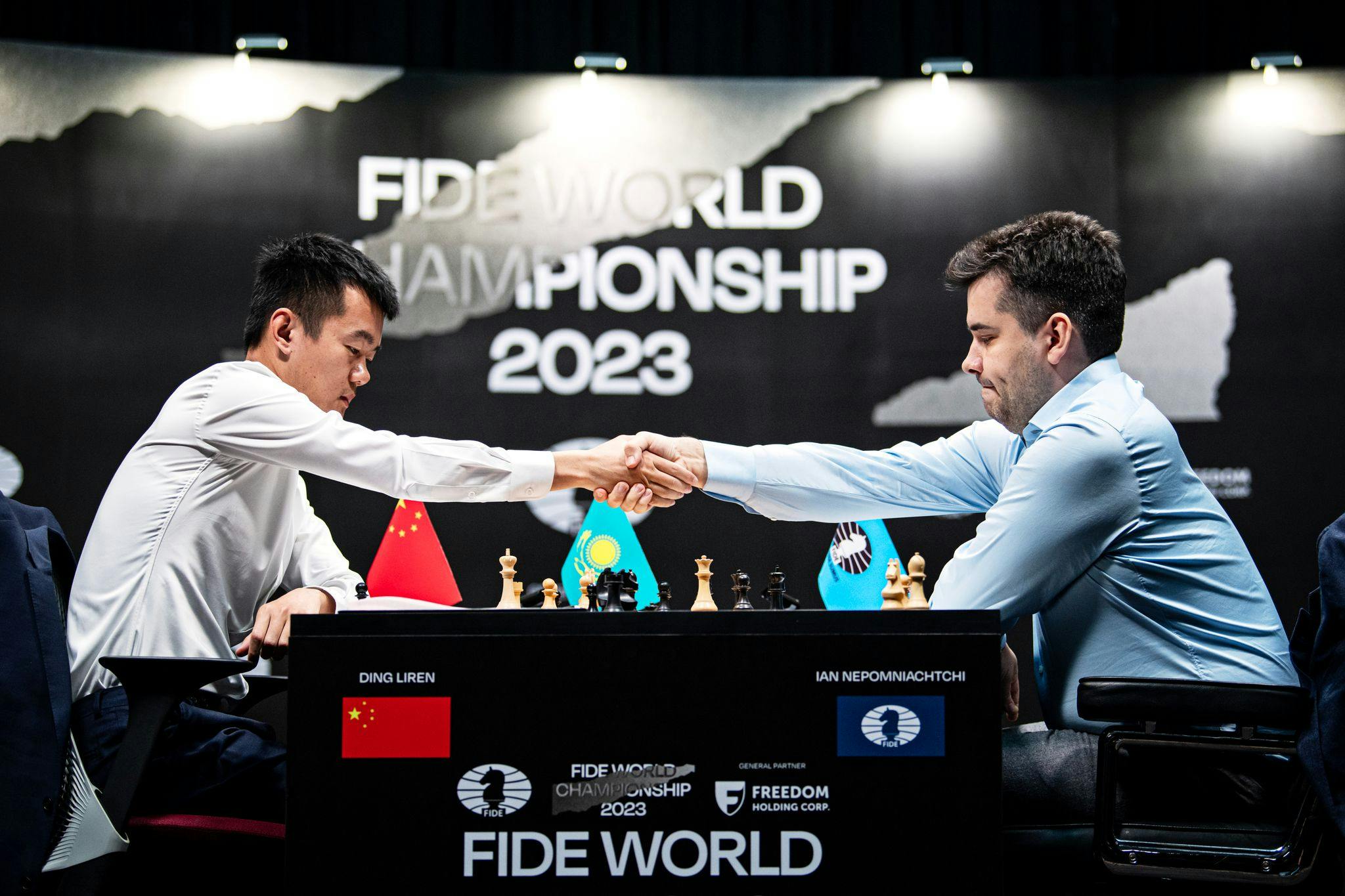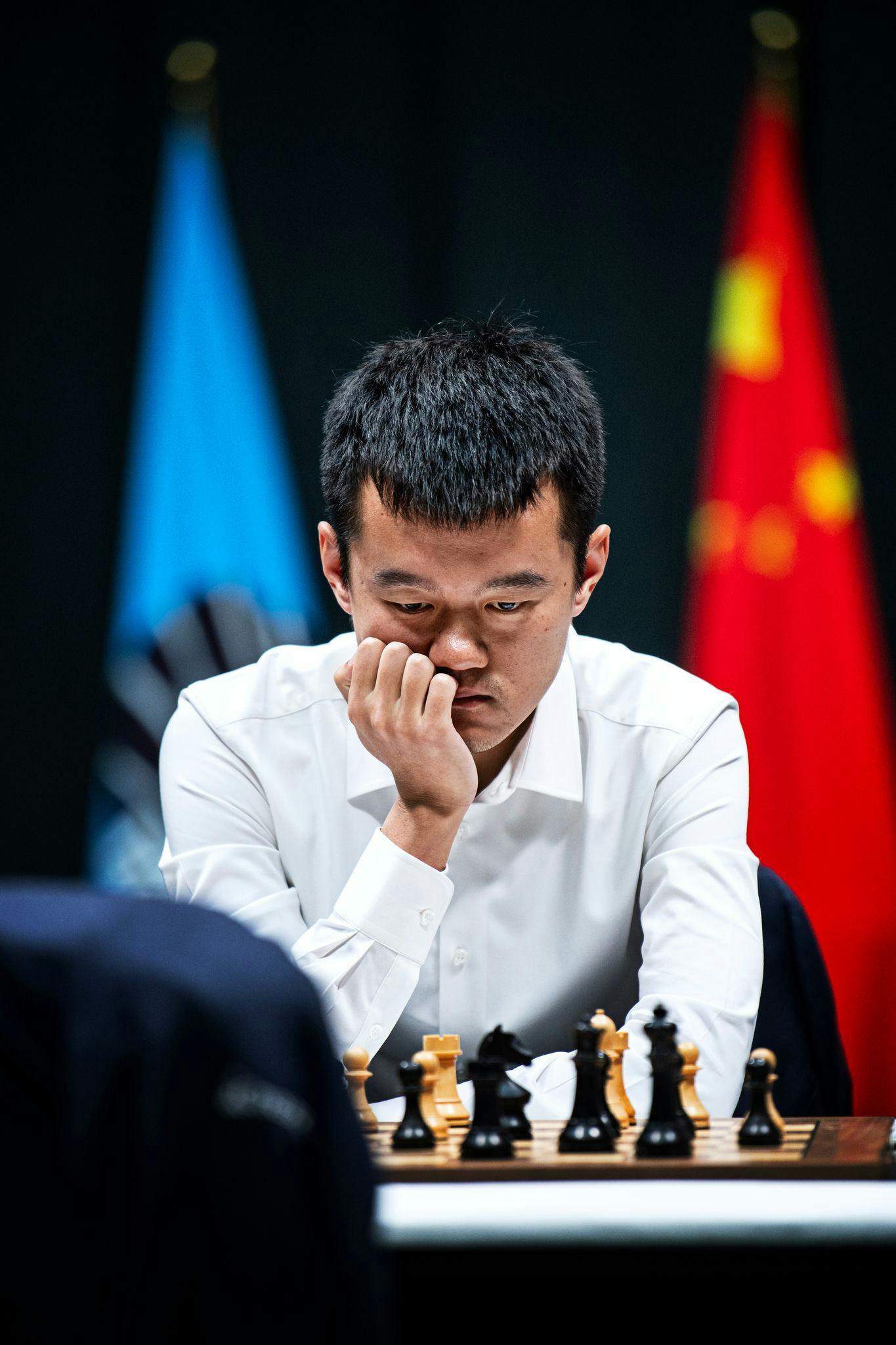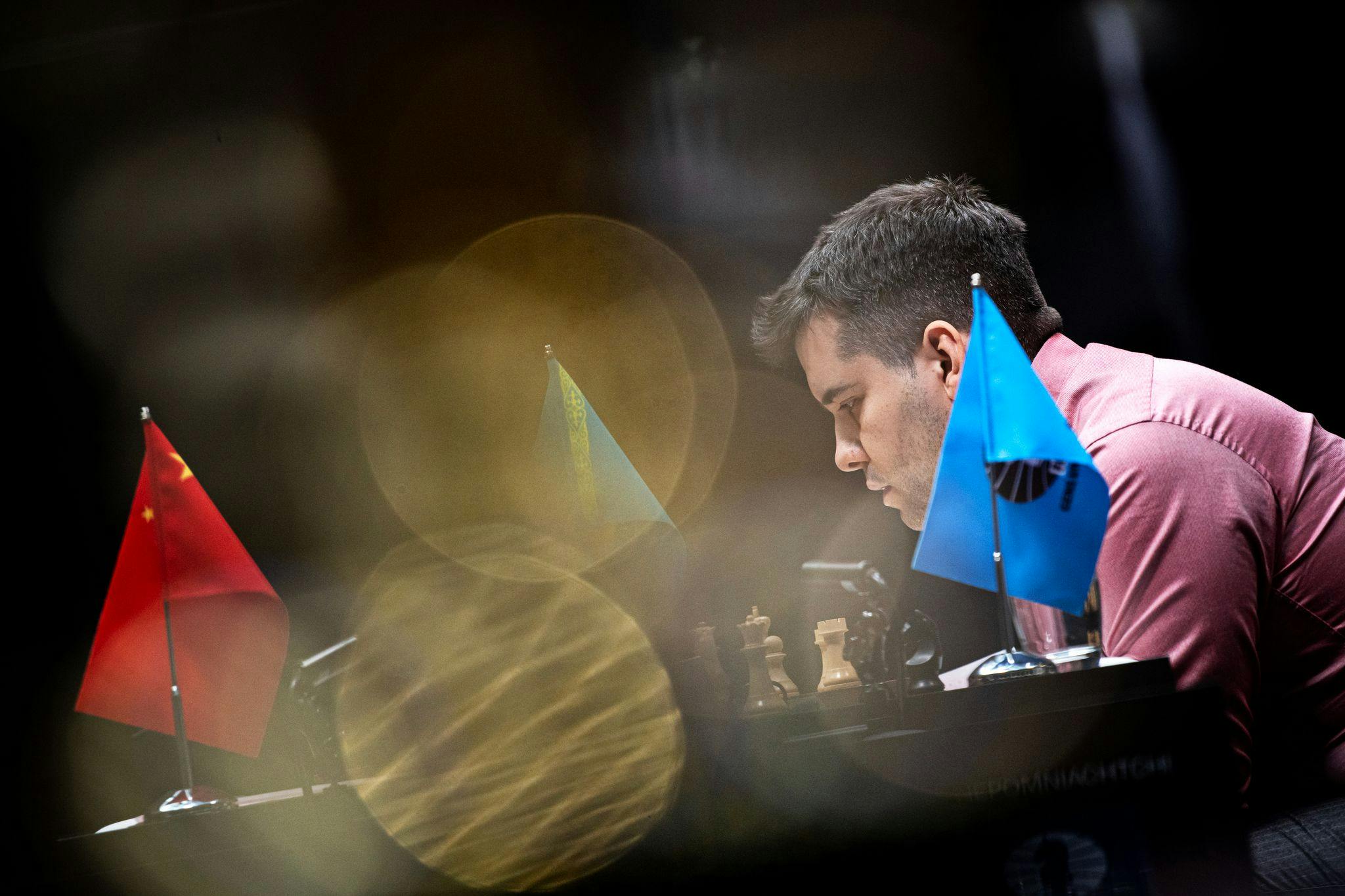Chess World Championship: Nepomniachtchi versus Ding – Games 1 and 2
A recap of the first two games of the ongoing World Championship with annotations by GM David Navara

The first two games of the 14-game match between Ian Nepomniachtchi and Ding Liren have already been played in Astana, the capital of Kazakhstan. The winner will be crowned as the new World Champion in classical chess, following Magnus Carlsen’s abdication of the title.
The schedule of games can be found here, with Lichess providing a broadcast transmission of all games. GM David Navara (2676, World #59) is providing annotations for games 1 - 4.
Game 1
https://lichess.org/study/SkQqKSso/pmUwO0a8
Overall, it felt like Nepomniachtchi had most of the momentum and was pressing for a win in the middlegame. However, despite Ding facing incredible time pressure, he was able to defend resolutely and Nepomiachtchi’s attack fizzled out. The players agreed to a draw on move 49, in a very equal position.

(Photo: FIDE / Stev Bonhage)
Ding seemed to be feeling the pressure of the match acutely. While he naturally has a shy and unassuming disposition, he seemed to be affected by the intensity of the match in previously unseen ways. He spent much of the match in his private area, bundled up in a thick coat, and was reluctant to stay at his board other than to make a move before retiring back to his private room.
During the player’s post-game interview, he admitted he had hardly been able to concentrate or focus on the game at all, feeling anxiety to such an extreme he felt physically cold, and “depressed”. If Ding is unable to control his psychological state, it is almost certain he will be unable to perform at a high 2700 level.
Game 2
https://lichess.org/study/SkQqKSso/rmU8rZf3
Ding tried – and succeeded – to take Nepomniachtchi by surprise and potentially out of prep with a very unusual move (and near novelty) 4. h3!?. This move was later clarified by Ding to have been the idea of his seconds, with the unorthodox Richard Rapport known to be on Ding’s team.
Ding seemed to be well prepared in the opening, but seemed to struggle in the position that came from it. At the key juncture of 11… Na5, white seemingly has only two serious candidate moves. Ding spent 33 minutes considering his response to this position, opting to exchange knights on f6.

(Photo: FIDE / Stev Bonhage)
However, in the post-game interview, Ding said that despite thinking for so long he had only considered the response of 12… Qxf6 and not gxf6 – opening up the g-file for black’s rook to eventually stare down on white’s castled king. Overlooking such a possibility and thematic move in the position is unexplainable and continues to highlight that Ding’s psychological state does not seem to be in the zone needed to perform at this level.
Ding’s resignation on move 29 made it the shortest Round 1 or 2 win (by number of moves) for Black in World Championship history, ignoring Fischer’s protest-default against Spassky in 1972.
Snap verdict
Fans of Ding will be bewildered and possibly even concerned by his performance so far. His focus seems to not be on the game in front of him but, in a purely armchair opinion, on some internal struggle instead. He has not yet shown the positional stability which he has built his reputation on. He seems to be finding it difficult to recall his preparation at key moments. It is difficult to come to any conclusion other than that if he continues like this, the match will be all but a walkover for Ian Nepomniachtchi.

(Photo: FIDE / Stev Bonhage)
It is not too late for Ding to turn this around; the score is only 1.5 - 0.5 with another 12 games to go. In previous World Championships, both Fischer (1972) and Anand (2010) turned around early deficits to take the title overall. Ding is a player who seems to need to warm up into a tournament, with his best results in the 2022 Candidates coming in the later rounds of the event.
However, in a match format time is of the essence for Ding, and strategically Nepomniachtchi will be happy to sit back and play for draws – not trying to create any advantage but exploiting one if the chance appears. Such a strategy forces Ding to take risks, but there is ultimately no alternative for Ding if he wishes to become World Champion.
Lichess is regularly running World Championship Thematic Arenas on the days of the tournament - with positions taken from the games. Make sure you follow our social media to see when the next one will be!
(Photo - title image: FIDE / Stev Bonhage)